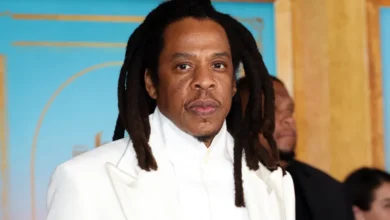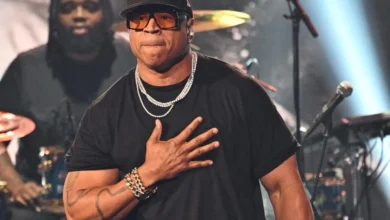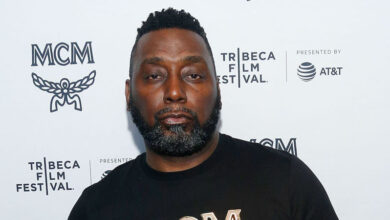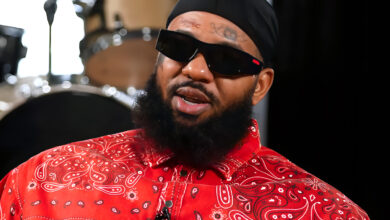Inside the Common and Ice Cube Beef
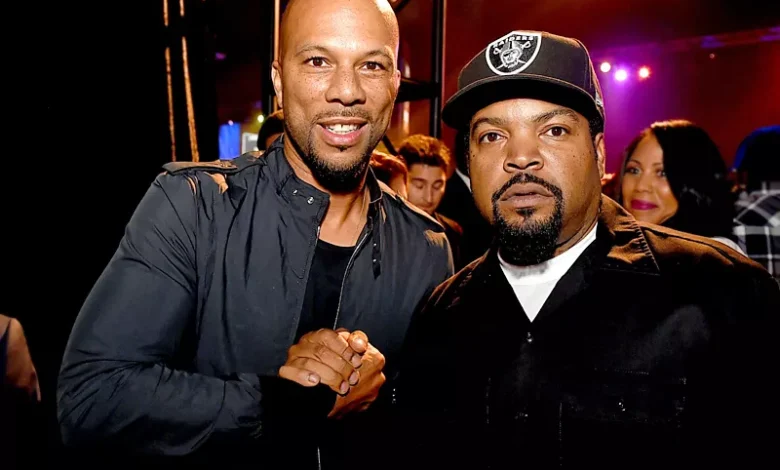
Before they were Hollywood regulars or elder statesmen of hip-hop, Common and Ice Cube were on opposite sides of one of rap’s most intellectually-charged beefs. While it never spiraled into full-blown chaos, the lyrical clash between these two titans in the mid-’90s was a masterclass in wordplay, pride, and the power of hip-hop to both divide and unite.
The Spark: “I Used to Love H.E.R.”
The beef’s origin traces back to Common’s 1994 track “I Used to Love H.E.R.”, a poetic metaphor where he personifies hip-hop as a woman whose evolution disappointed him. The song critiques the genre’s shift toward gangsta rap and commercialization, particularly its dominance on the West Coast at the time. While Common never named names, Ice Cube—then riding high with his group Westside Connection—took the lyrics personally.
Lines like “She was on that tip about stoppin’ the violence / About my people she was teachin’ me / Now nothin’s righteous about this sister” were seen by Cube and his crew as a direct diss to West Coast rap culture. To them, Common was implying that their style corrupted the genre’s original spirit.
Ice Cube’s Response: “Westside Slaughterhouse”
Ice Cube and Westside Connection responded swiftly and aggressively with “Westside Slaughterhouse” and later “Real N**z”, taking direct shots at Common and defending their vision of hip-hop. The message was loud and clear: respect the West or get rolled over.
Cube’s reputation as a battle-hardened lyricist meant the diss didn’t go unnoticed. Suddenly, the soft-spoken, conscious rapper from Chicago was in the crosshairs of one of the most feared voices in rap.
Common Fires Back: “The Bitch in Yoo”
Common wasn’t about to back down. In 1996, he released “The Bitch in Yoo”, a razor-sharp diss produced by Pete Rock that’s still regarded as one of the most articulate takedowns in hip-hop beef history. He questioned Cube’s authenticity, accused him of biting styles, and called out his pivot from political rap to commercial gangsta imagery.
The track was cold, calculated, and devastating. “I heard a ho say you her favorite rapper / So I had to slap her,” Common rapped with surgical precision. The message was clear: intellect could be just as lethal as aggression.
The Turning Point: Peace Talks
Thankfully, the beef never turned violent. In 1997, Minister Louis Farrakhan brokered peace between the two artists during a private sit-down in Chicago. Recognizing the potential for unity and mutual respect, both Common and Ice Cube agreed to squash the beef. The moment was a pivotal one—not just for them personally, but for hip-hop culture, which was still reeling from the East Coast vs. West Coast conflicts that had tragically taken lives.
Aftermath and Legacy
Over time, both Common and Cube evolved beyond rap beefs. Common would go on to win Grammys, an Oscar, and become a celebrated actor and activist. Ice Cube transitioned into a successful film career, even co-producing family-friendly movies, while still maintaining his street credibility.
Today, their beef is often looked back on as a classic example of lyrical warfare—competitive, heated, but ultimately respectful in its resolution. It stands as proof that rap beefs don’t have to end in tragedy—they can end in growth, peace, and even mutual admiration.
Two decades later, Common and Ice Cube have occasionally shared stages and even collaborated on social issues, showing how maturity and respect can turn a feud into a footnote in an otherwise powerful legacy.
From bars to brotherhood—their beef may have started in rhyme, but it ended in resolution.

